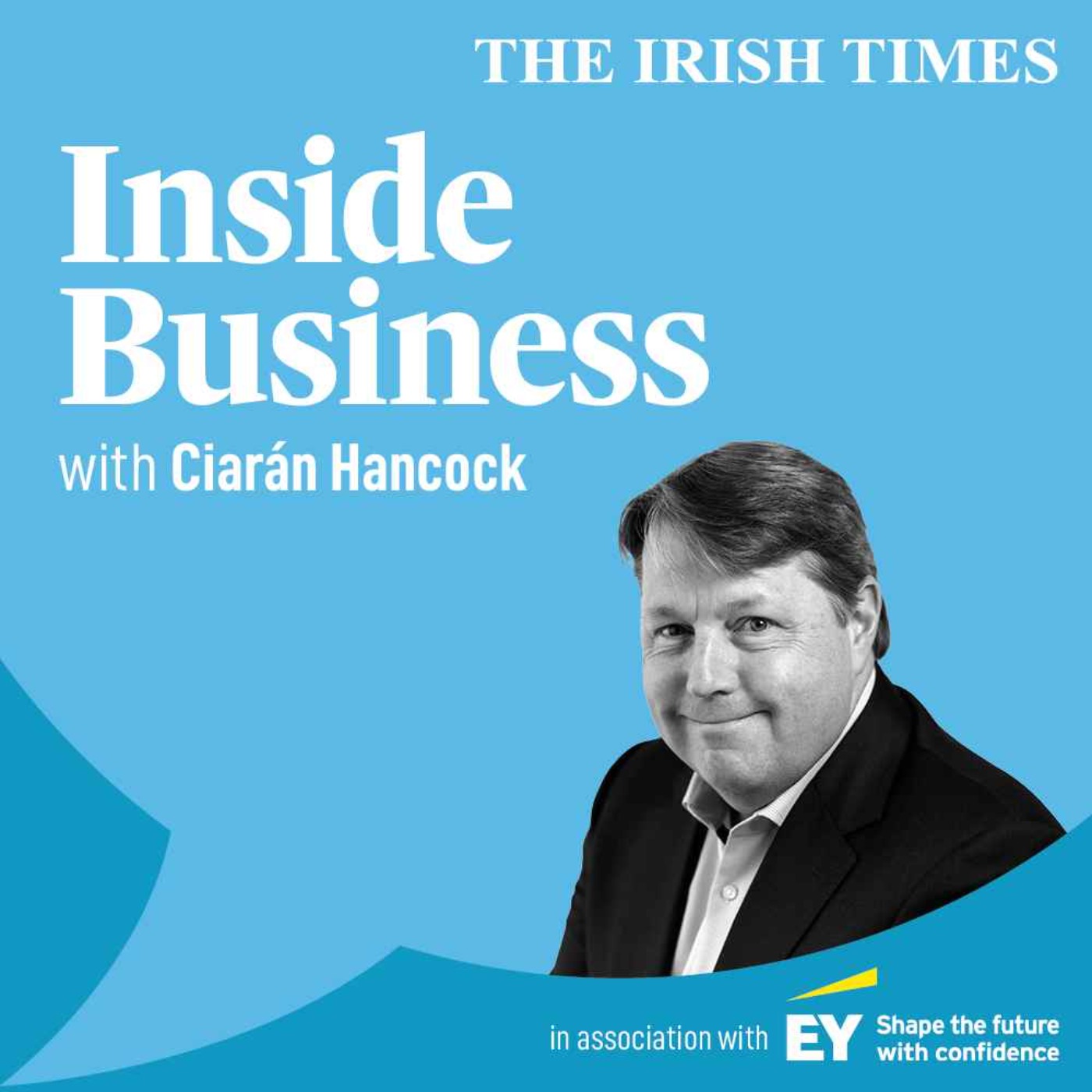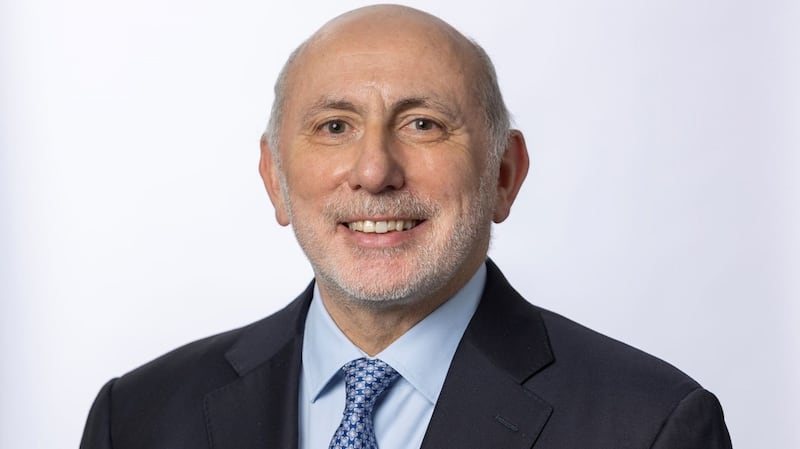Natural resources veteran Tom Hickey hasn’t had much time in his 13 months as managing director of Kenmare Resources to map out his vision for the Dublin-listed titanium minerals miner.
Within months of being appointed to succeed Kenmare’s founding managing director, Michael Carvill, in August last year, his predecessor was back, with Abu Dhabi private equity firm Oryx Capital Partners in tow, looking to buy out the company behind the Moma mine in Mozambique.
While the board called time on the talks in June, after the consortium indicated it would only be willing to proceed with a bid below its initial – rejected – £473 million (€543 million) proposal, Hickey says the exercise has “shone a light” on the fundamental value of Moma – even if the price of titanium minerals such as Ilmenite, its main product, have fallen sharply in recent years.
Moma, estimated to have a lifespan of another 100 years at current output rates, produces about 6 per cent of global titanium feedstocks. Ilmenite and rutile, captured by Kenmare dredging titanium-rich sands in mining ponds, aren’t exactly household names like gold, copper or aluminium. But they are used in everything from paints, plastics and paper to aircraft, medical equipment and golf clubs.
“This time last year, we had 13-14 investor meetings after we published interim results. It’s more than double that this year – including nine or 10 investors that don’t currently hold the stock,” he says.
Some may be trying to work out if Carvill – or someone else – may have another tilt at the company. Sources told The Irish Times in March that British-Australian mining giant Rio Tinto also expressed an interest last year – even if it went nowhere. Indeed, Rio Tinto was recently reported to be weighing a sale of its own titanium unit.
[ Kenmare Resources plunges to $88.6m loss after taking $100m hit on mining assetsOpens in new window ]
But more are looking to find out what Hickey plans to do with the large amounts of cash Kenmare will be throwing off in the coming years, after most of the expenditure of a $341 million (€293 million) project to upgrade and relocate its main mining plant ends this year.
“We’re conscious that when we come out early next year with our results that we need to talk a little bit more about capital allocation,” says Hickey.
Most investors like the company’s regular dividends, which have driven more than $300 million of shareholder distributions since 2019, including an interim 2025 payment announced last month. Dividends will remain the first consideration, he says.
Then there are share buy-backs, which have accounted for more than a third of distributions over the past six years.
But Hickey has also spoken in recent times about potential diversification, telling shareholders at an annual general meeting in May that it had assessed projects in Australia, Saudi Arabia, Namibia and Cameroon in the previous year.
 Kenmare’s Moma Mine. Photograph: Kenmare Resources
Kenmare’s Moma Mine. Photograph: Kenmare Resources
He said on a podcast with a Peel Hunt analyst in June that he was open-minded about whether to go after “an exploration asset, a development or a production asset” – knowing that Kenmare remains off the radar for many investors because of risks surrounding its concentration on a single asset in a single country.
“When shareholders hear you talking about diversification, they fear you’re going to go off and spend a whole lot of money on an acquisition and load up on debt,” he said. “But what I’m talking about very early-stage assets that we might grow over time. We’re not going to surprise the market badly with M&A.”
But industry observers say his experience in M&A (mergers and acquisitions) would have been of interest to the board when he was appointed – whether that ends up in Kenmare buying something or being taken over itself.
Hickey, a native of Templeogue in south Dublin, joined the Civil Service straight out of school in 1986, working as a District Court clerk while studying for a commerce degree at night with University College Dublin (UCD).
 Why are some independent Irish breweries turning off their taps and closing?
Why are some independent Irish breweries turning off their taps and closing?
He joined the now defunct Arthur Andersen accounting group in 1991, trained as an accountant, and worked in audit, where he got his first taste of the natural resources sector with firm clients such as Aran Energy, Bula Resources and the late businessman Tony O’Reilly’s Arcon.
He moved to the corporate finance division of ABN Amro’s Riada Stockbrokers in Dublin in 1995, where he gravitated towards resources clients such as Ivernia West, which was behind the now-closed Lisheen lead and zinc mine in Co Tipperary, oil and gas company Aminex, and a then-fledgling explorer called Tullow Oil.
When Tullow was reorganising its finance team in early 2000 as founding chief financial officer Matt Maher was retiring, company founder Aidan Heavey went about convincing Hickey, then 31, to join as deputy head of finance. After struggling to find a chief financial officer (CFO) that would fit in with the team, Heavey invited Hickey for a pint and offered him the job.
He had to hit the ground running. Within three months of joining, Tullow agreed to buy two North Sea gasfields from BP for £200.6 million sterling (€231 million), a big deal that gave it stable production and cash flow to fuel further acquisitions.
Hickey’s eight years with Tullow saw it: carry out the transformational $500 million (€429.7 million) purchase of Energy Africa, establishing it as a big player in the region; discover the Jubilee oil and gasfield of the coast of Ghana in west Africa (which a decade and a half later remains the group’s main producing asset); and vault into the prestigious FTSE 100 index as its share price soared.
“I discovered during that time that I liked working for founders. But every visionary needs someone who can help them work out which of the 10 ideas floating around their head at any given time are crazy,” he says. “Aidan could tell a great story to investors, which in many ways he achieved. And I could persuade them how we would finance the plans.”
Promotion to the FTSE 100 in 2007 also got the board thinking more seriously about succession planning for Heavey, even though he would remain in charge for another 11 years.
“For my technical and exploration colleagues, that involved them getting to know the market, analyst and shareholders and learning about the commercial side of things. For me, it would have involved going to Africa and doing things like sitting in a corridor and waiting to meet a minister for six weeks. I was three or four years married at the time, and while we didn’t have any kids then, it wouldn’t have been the right thing for me to do – even if I would have loved it,” he says.
“So, rather than rule myself out but stay in the business, I decided to step away in late 2008.”
[ Kenmare former MD’s golden handshake boosts pay to €2.3mOpens in new window ]
Comfortable financially from Tullow’s success during his time with the company, Hickey could afford take some time out. “I meant to take a year off. It was great to be out in 2009, when the whole world was falling apart. But time drifted. And I found myself watching the Tour de France in July 2010 at 4 o’clock in the afternoon on TG4 in my running gear – having not gone for a run because I was too busy updating my wife’s cat’s Facebook page – and thought to myself, ‘I could probably be doing something a bit more than this’.”
He joined Petroceltic, the Irish-based oil and gas company, as finance chief later that year. It would be a vastly different experience to his time at Tullow. Following an abortive £492 million bid by Dubai’s Dragon Oil in 2014 as oil prices plunged, the company became the subject of a bitter dispute with its main shareholder, Swiss-Cayman Islands hedge fund Worldview Capital Management.
The company succumbed to examinership in 2016 on running out of cash after Worldview blocked an equity raise. Worldview ended up gaining control for a knock-down price of $7.8 million, resulting in the exits of Hickey and his chief executive, Brian O’Cathain.
“It was brutal at times,” he recalls, adding, delicately, that “the performance of the assets since then certainly doesn’t accord with what [Worldview] would have hoped”. The Algerian state ended up seizing its key gasfield asset in that country in 2021. It resulted in the company, by then renamed Sunny Hill Energy, taking a $324 million impairment charge and its remaining assets being eclipsed by liabilities.
Following a stint as chief financial officer at travel tech company CarTrawler, Hickey was lured back into resources by Heavey in 2019 as his former boss sought to set up another oil venture. Backed by $1 billion of funding commitments from US private equity giant Carlyle, the duo’s Boru Energy would go on to have talks in 2021 with Texas-based Occidental Petroleum about acquiring its minority stakes in the Tullow-operated Jubilee and nearby Tweneboa-Enyenra-Ntomme (Ten) fields.
However, the stakes ended up being acquired by an existing minority partner in the joint venture, Kosmos Energy, and Tullow (which had pre-emption rights).
Around that time that ESG (environmental, social and governance) issues were also coming to the fore, and private equity firms were getting nervous about being left with assets they couldn’t sell in the future. “Boru just kind of tailed off,” he says.
By early 2022, Hickey – who had accumulated a number of advisory interests and non-executive roles at the likes of software firm Teamwork, VorTech Water Solutions, and online furniture sales platform Ufurnish.com – figured he’d never work full-time again.
But when the CFO role came up around the middle of that year at Kenmare Resources, it was too hard to resist. Hickey knew Carvill well from Ireland’s small natural resources scene. Carvill first saw the potential at Moma almost four decades ago, before finally getting it to production in 2007.
“What Michael achieved in an area of literally subsistence farming on scrubland in Mozambique is just mind-blowing,” says Hickey.
 Kenmare Resources founder Michael Carvill
Kenmare Resources founder Michael Carvill
Ninety-seven per cent of Kenmare’s 1,700 employees in the country are Mozambican , while it is forking out “north of” $200 million a year locally in wages and payments to suppliers, he says.
Its not-for-profit foundation has invested about $23 million over the past two decades in healthcare, education, clean water and broader community development efforts in the area. The company paid a similar amount last year in taxes and royalties to the country’s government. Moma, in which Kenmare has invested $1.5 billion to date, accounts for about 7 per cent of Mozambique’s exports.
Hickey was thrust into the role of managing director 13 months ago when Carvill exited, amid a perception among certain shareholders that he was resistant to a sale of the business (he fought a bid from Australia’s Iluka a decade ago tooth and nail, while calls early last year from investor JO Hambro for a strategic view came to nothing), and a higher-than-expected cost of the ongoing capital investment programme.
The average price of Kenmare’s products, which soared amid tight global supplies in the wake of the peak of the Covid-19 pandemic and Russia’s invasion of Ukraine, have fallen almost 30 per cent since their 2022 peak to $326 a tonne. This has been driven by a surge in supply – particularly among Chinese producers operating in Africa – that would exceed even solid demand.
CV
Name: Tom Hickey
Position: Kenmare Resources managing director
Family: Married to Linda, with three daughters
Lives: Killiney, south Co Dublin
Hobbies: Coaches athletics with Cabinteely Athletics Club and loves going to music gigs, usually smaller ones rather than big festivals.
Something about Tom you might expect: He holds three non-executive roles, which, he says, makes him more effective as an executive.
Something that might surprise: He has eight chickens in the back garden. It’s his job to check in on them every morning.
Hickey says he believes the price of ilmenite is “bottoming out” and that some producers – particularly players that haven’t invested in the expensive machinery Kenmare has to maximise extraction – will exit the market.
“Once that plays out it will be reflected in supply and prices. Hopefully we’ll also see reconstruction in areas of geopolitical conflict and the Chinese economy picking up again, which will also help prices,” he says.
Still, Kenmare took a red pen to its long-term price assumptions in recent months, resulting in it taking a $100.3 million non-cash impairment charge against Moma in the first half of this year. This pushed it into a $94.2 million net loss for the period.
More pressingly, Kenmare is pushing to reach an agreement on a new production and exports royalties deal – or so-called implementation agreement – with Mozambique. The company has been in talks with local authorities on this for the past three years, but they drifted after a presidential election late last year led to months of civil unrest. The previous 20-year accord expired just before last Christmas, though the terms remain in place until a new one is reached.
Kenmare is proposing that the existing 1 per cent royalty rate would rise to 3.5 per cent over time – and the equivalent of a further 0.5 per cent be generated from a new withholding tax on payments to non-Mozambican suppliers, including services provided by group headquarters in Dublin. Kenmare is also subject to a separate 3 per cent mining royalty on heavy mineral concentrates it produces.
[ Kenmare ‘well-placed’ to tap into growing global demand for titaniumOpens in new window ]
The company said in its interim results statement last month that it remains hopeful of a successful conclusion, but warned that it reserved “the right to safeguard Kenmare’s contractual entitlements, up to and including arbitration, if an agreement cannot be reached”.
There was confusion earlier that month when a press officer for the Mozambique council of ministers mistakenly said a deal had been reached, forcing Kenmare to clarify that this was not the case.
“Every single exchange we’ve had [with Mozambique officials] has been polite, professional and commercial. I completely respect they have to protect their interests and do the best deal for Mozambique they can,” he says.
“But to end up in arbitration with one of your biggest investors internationally over the past 20 years – at a time when you want to get other overseas investors in – would not be good for anybody.”
“We can’t wait forever.”
